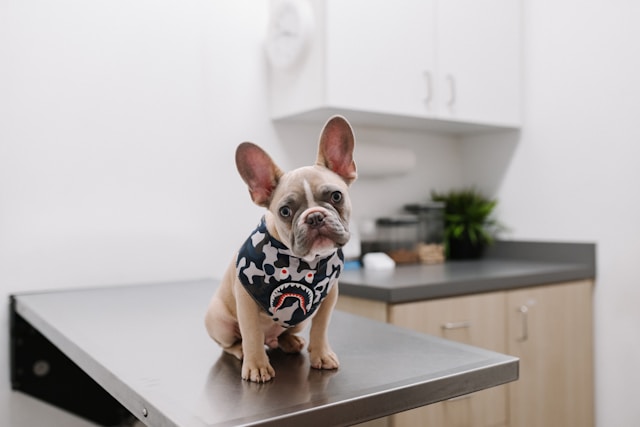Protecting Your Pets: A Comprehensive Guide to Avoiding Toxic Foods

What to Keep Away from Dogs and Cats
Dogs and cats are naturally curious, especially when it comes to food. Their endearing attempts at sharing our meals or sneaking a taste of our culinary creations are all too familiar. Yet, not all human foods sit well with our pets – some can be toxic, even deadly to their well-being.
This comprehensive guide is vital to preventing unintended toxic exposure to your four-legged companions.
Alcohol
Alcohol swiftly infiltrates a pet's bloodstream, inducing rapid effects. Discarded cups of wine, beer, or sangria left within reach are tempting for pets. Alcohol ingestion can lead to dangerous fluctuations in blood sugar, blood pressure, and body temperature, with the potential for seizures and respiratory failure. Beware of desserts infused with alcohol or yeast-containing dough, which can pose a threat.
Caffeine
Steer clear of giving your pet anything with caffeine, including coffee, tea, energy drinks, or dietary supplements. These substances can wreak havoc on the heart, stomach, intestines, and nervous system, manifesting as restlessness, hyperactivity, muscle twitching, increased urination, excessive panting, elevated heart rate, high blood pressure, and seizures.
Chocolate
Theobromine and caffeine, present in varying quantities in different types of chocolate, can be hazardous to pets. Dark and decadent chocolates, such as baker's chocolate, pose the highest risk. Ingestion of chocolate by dogs may result in symptoms like vomiting, diarrhea, urination, hyperactivity, heart arrhythmias, tremors, and seizures.
Fatty Foods
High-fat foods can provoke vomiting, diarrhea, and, in dogs, pancreatitis. Certain breeds, such as miniature schnauzers, Shetland sheepdogs, and Yorkshire terriers, are more susceptible to pancreatitis. Resist the temptation to share fast food leftovers, junk food, or greasy dishes like burgers, hot dogs, ribs, steak, pork chops, and fried chicken with your dog.
Fat Trimmings and Bones
Both cooked and uncooked meat fat trimmed from human meals can trigger pancreatitis in dogs. While giving your dog a bone may seem natural, it carries the risk of choking or causing obstructions and lacerations in the digestive system. Always provide a trash can with a secure lid or a sealable trash bag to prevent your pet from accessing scraps or bones left within reach.
Fruit Toxins
Persimmons, peaches, plums, and cherries harbor potential dangers in their seeds or pits. Persimmon seeds can lead to inflammation of the small intestine, while peach and plum pits and cherry seeds contain cyanide – a poisonous substance for humans and dogs when the pit is broken open. Grapes and raisins have been associated with acute kidney failure in dogs, with the toxic dose remaining uncertain. As few as four grapes or raisins may affect small dogs.
Milk and Dairy Products
Although sharing ice cream with your dog on a hot day may seem tempting, adult dogs lack the necessary lactase for milk digestion, causing diarrhea and other digestive problems. Seek advice from your veterinarian for safe alternatives.
Mushrooms
Wild mushrooms, which may grow in your yard or along the paths where you walk your dog, contain toxins that can harm multiple organ systems, including the kidneys, liver, and brain. Consumption of mushrooms by dogs can lead to nervous system abnormalities, seizures, coma, vomiting, and even death.
Nutmeg
Nutmeg, commonly found in baking spices, emits an alluring aroma for dogs. However, excessive consumption of nutmeg can be fatal, causing symptoms like tremors, seizures, and nervous system abnormalities.
Nuts
While peanuts are a common query among pet owners, not all nuts are safe. Almonds, non-moldy walnuts, and pistachios can trigger an upset stomach or throat and intestinal obstructions. Macadamia nuts and moldy walnuts can result in toxic poisonings, while moldy walnuts may contain toxins from fungi, causing seizures or neurological symptoms.
Onions and Garlic
Onions contain thiosulphate, which is toxic to cats and dogs, leading to hemolytic anemia – the bursting of red blood cells. Even a tiny amount can be detrimental. Garlic, chives, and leeks are part of the Allium family and poisonous to cats and dogs. Garlic, in particular, is around five times more potent than onions, leading to red blood cell damage, along with symptoms like nausea, oral irritation, drooling, abdominal pain, vomiting, diarrhea, lethargy, pale gums, increased heart rate, elevated respiratory rate, weakness, exercise intolerance, and collapse.
Raw Eggs
Feeding your dog raw eggs can lead to food poisoning due to bacteria like Salmonella or E. coli. Additionally, excessive consumption may result in biotin deficiency, causing skin problems and affecting your dog's coat. Cooked eggs are a safer option.
Raw Meat and Fish
Raw meat and fish can carry bacteria, leading to pet food poisoning. Some fish, like salmon, trout, shad, or sturgeon, may contain a parasite causing "fish disease," which can be fatal if left untreated. Symptoms include vomiting, fever, and enlarged lymph nodes. Properly cooking fish eliminates the parasite and protects your dog.
Rhubarb
This vegetable contains oxalates, which can disrupt the nervous system, kidneys, and digestive tract. Rhubarb is commonly used in recipes like pies, jams, jellies, sauces, and juices.
Salt
Surprisingly, common table salt can be toxic to pets. They often ingest salt from sources that may astonish pet owners, such as household play dough, ocean saltwater, or paintballs filled with salt. Salt toxicity may lead to severe consequences, including poor coordination, seizures, and brain swelling, and necessitates careful veterinary treatment.
Xylitol
Xylitol, a sugar substitute, is found in various products, including toothpaste, mouthwash, sugarless gum, cough medicines, and children's chewable vitamins. It's also present in some baked goods and candies. In dogs, xylitol ingestion results in the rapid release of insulin, leading to hypoglycemia, manifested as vomiting, weakness, and, sometimes, seizures. In some instances, xylitol poisoning can cause liver failure, with just a single stick of xylitol gum proving toxic to a 20-pound dog.
Yeast Dough
Unbaked dough containing yeast can expand within your pet's stomach or intestines. As the yeast ferments, it releases gases, causing nausea, vomiting, diarrhea, and potentially life-threatening bloat and stomach torsion. Some yeast dough may ferment into alcohol, contributing to symptoms of lethargy and alcohol toxicity.
What steps should I take if my pet unintentionally swallows an unfamiliar item or a harmful substance?
In cases of accidental ingestion, it is typically necessary to seek medical attention promptly. If your pet consumes something inappropriate, immediately contact your local animal hospital or the Pet Poison hotline for guidance and assistance.
Get insurance plans with wide-ranging coverage options













